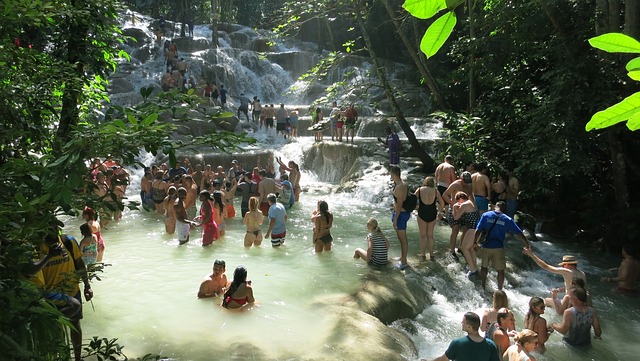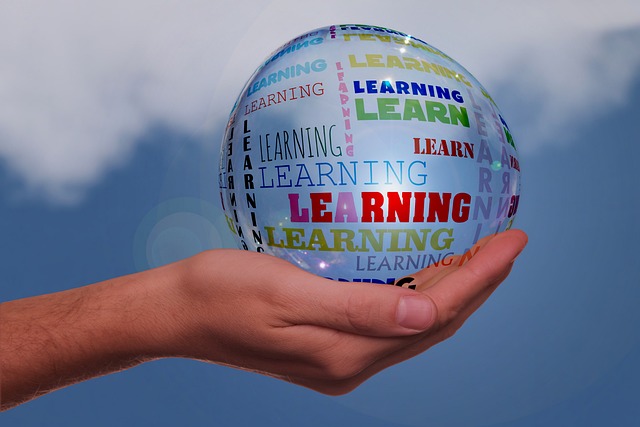Travel Tips For Learning And Fun
Travel is a way to see new places, meet different people, and explore cultures around the world. It can be close to home or far away, and every trip teaches something new. In this article, you will discover the basics of travel, how people prepare for it, and the many ways it can help you learn about history, food, and daily life in other places. With clear examples and simple explanations, this guide makes travel easy to understand and shows why it is an enjoyable part of life for people of all ages.

Creating an Educational Travel Plan
Crafting a travel plan with learning objectives requires thoughtful preparation. Begin by researching destinations that align with specific educational interests, whether historical periods, scientific phenomena, or cultural traditions. Consider museums, historical sites, and natural wonders that offer guided educational programs. Many travel guides now highlight educational components of destinations, making it easier to identify learning opportunities. When travel planning, allocate time for both structured learning activities and unstructured exploration, as spontaneous discoveries often provide the most impactful learning experiences. Create a flexible itinerary that balances educational sites with recreational activities to maintain engagement throughout your journey.
Immersing in Cultural Travel Experiences
Cultural immersion represents one of travel’s most profound educational opportunities. Rather than merely observing local customs, seek opportunities to participate in cultural practices. Cooking classes, craft workshops, language exchange programs, and homestays offer authentic insights into daily life abroad. Before your trip, learn basic phrases in the local language and research cultural etiquette to show respect and facilitate meaningful interactions. Many destinations offer community-based tourism initiatives where visitors can learn traditional skills directly from local artisans and knowledge-keepers. These experiences not only deepen your understanding of different cultures but also contribute to preserving cultural heritage and supporting local economies.
Educational Travel Activities for Families
Family travel presents unique opportunities to combine learning with adventure in age-appropriate ways. When traveling with children, consider their interests and attention spans when selecting educational activities. Interactive museums, wildlife sanctuaries, archaeological sites with hands-on components, and living history experiences often captivate young imaginations while conveying valuable information. Many family-friendly destinations now offer junior ranger or young explorer programs that engage children through scavenger hunts, badge-earning activities, and kid-focused tours. Prepare children before trips by reading books about the destination and involving them in planning which educational attractions to visit. This pre-trip education builds anticipation and provides context for what they’ll experience.
Balancing Learning and Leisure
The most successful educational trips maintain a careful balance between intellectual stimulation and relaxation. Even the most enthusiastic learners experience fatigue when faced with too many museums or historical sites in succession. Alternate educational activities with recreational pursuits—a morning at an archaeological site might be followed by an afternoon at the beach. This pacing helps maintain enthusiasm and prevents information overload. Schedule downtime for reflection, allowing travelers to process and internalize new knowledge. Many travelers find that journaling about their experiences enhances retention and deepens appreciation of what they’ve learned. Remember that enjoyment and education are not mutually exclusive goals but rather complementary aspects of meaningful travel.
Leveraging Technology for Educational Travel
Modern technology offers powerful tools to enhance the educational value of travel experiences. Mobile applications can provide historical context for landmarks, translate unfamiliar languages, identify wildlife species, or explain astronomical phenomena visible in night skies. Audio guides and augmented reality features at cultural sites offer deeper insights than traditional placards. Before departure, download relevant educational apps, e-books, and podcasts related to your destination. Consider travel-specific learning platforms that offer virtual tours or preparatory courses about destinations. While technology enhances educational travel, balance screen time with direct observation and personal interaction to maintain an authentic connection with the places you visit.
Educational Travel Programs and Resources
The growing interest in educational travel has spawned numerous specialized programs and resources to facilitate meaningful learning experiences. These structured opportunities range from university-affiliated study tours to family-oriented educational vacations.
| Program Type | Typical Features | Best For | Approximate Cost Range |
|---|---|---|---|
| Museum Travel Programs | Expert-led tours, behind-the-scenes access, themed itineraries | Art/history enthusiasts | $2,500-$5,000 per person |
| Science Expeditions | Field research participation, expert naturalists, remote locations | Science-minded travelers | $3,000-$8,000 per person |
| Family Learning Vacations | Multi-generational activities, child-friendly education | Families with varied ages | $1,200-$4,000 per person |
| Language Immersion Programs | Homestays, formal instruction, cultural activities | Language learners | $1,500-$3,500 per week |
| Historical Tours | Site-specific historians, chronological journeys | History enthusiasts | $2,000-$6,000 per person |
Prices, rates, or cost estimates mentioned in this article are based on the latest available information but may change over time. Independent research is advised before making financial decisions.
Documenting Educational Travel Experiences
Capturing and preserving your educational travel experiences extends their value long after returning home. Beyond typical vacation photographs, consider creative documentation methods that reinforce learning. Maintain a travel journal recording not just activities but reflections on what you’ve learned and how it changed your perspective. Create themed collections—sketches of architectural details, recordings of local music, or samples of regional recipes—that connect to educational themes. For family travelers, encourage children to document their observations through age-appropriate means such as drawing, collecting (where permitted), or recording video diaries. These artifacts serve as powerful memory triggers and learning reinforcement tools, transforming temporary travel experiences into lasting knowledge.
Travel that combines learning with enjoyment creates experiences that resonate long after returning home. By thoughtfully incorporating educational elements into your journeys, you transform ordinary vacations into opportunities for personal growth and deeper understanding of our world. The skills acquired through educational travel—cultural sensitivity, adaptability, curiosity—benefit travelers in countless aspects of life beyond their journeys. Whether exploring a different neighborhood or a different continent, approaching travel with an open mind and eagerness to learn ensures meaningful connections with the places and people you encounter.




